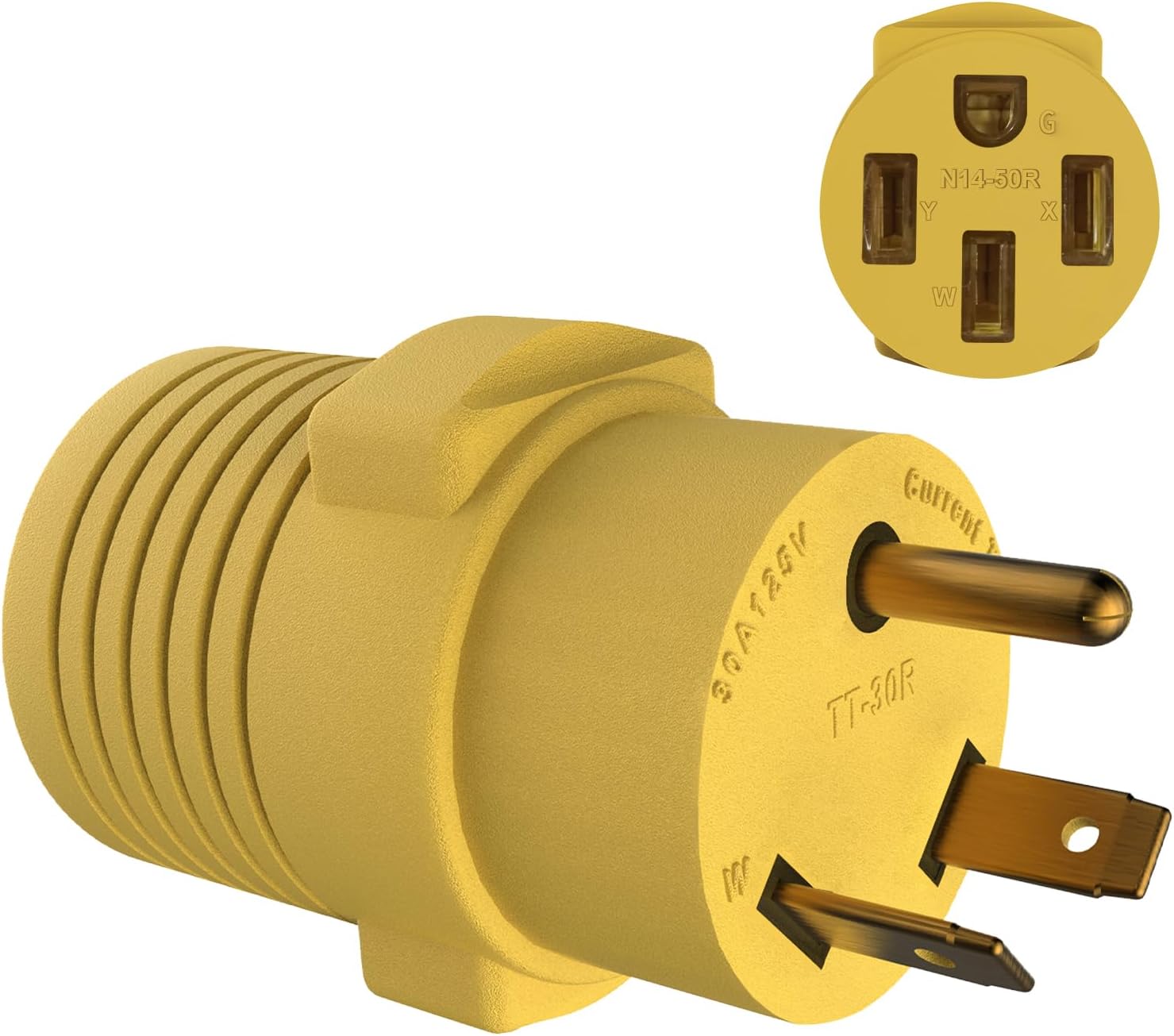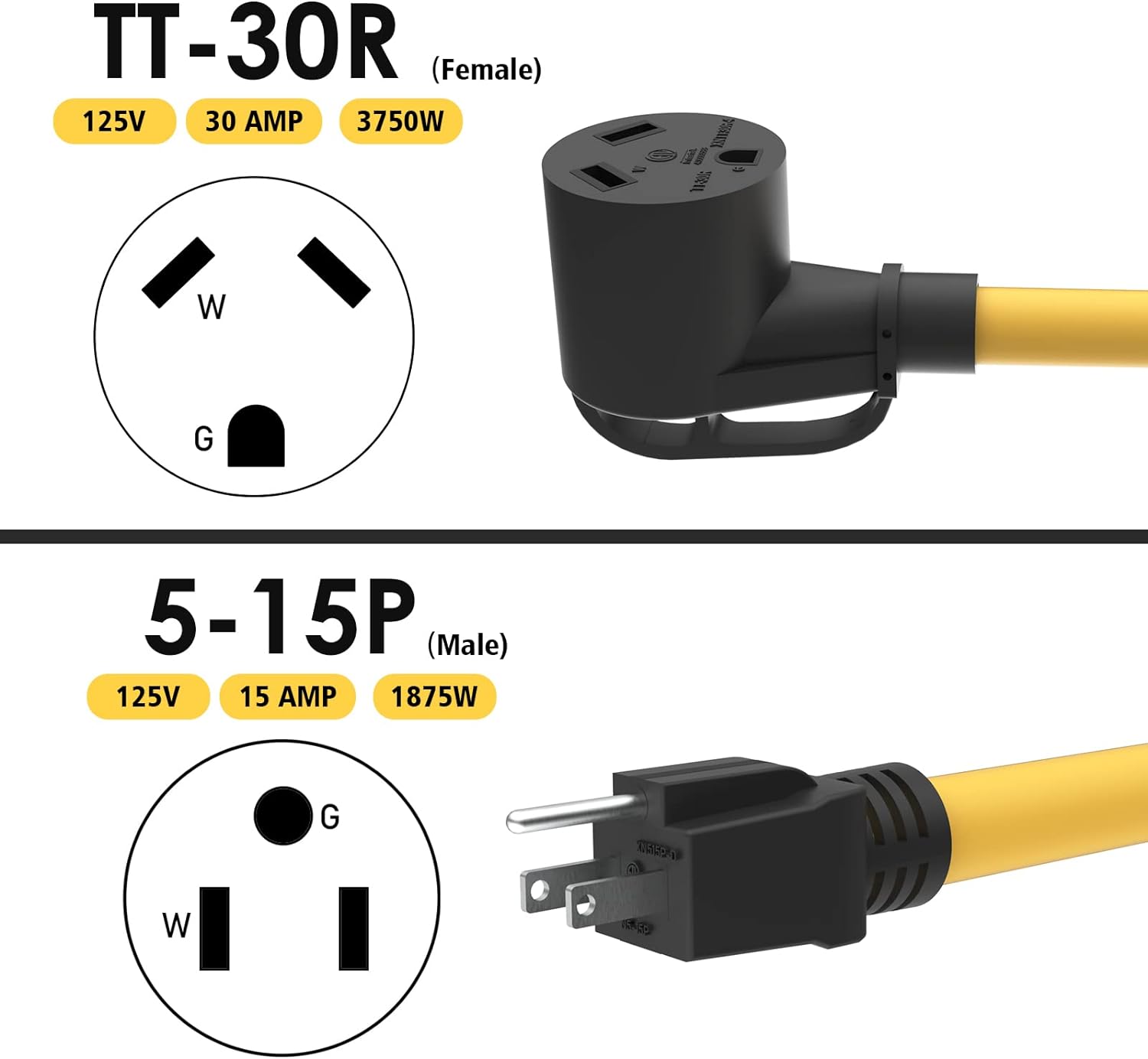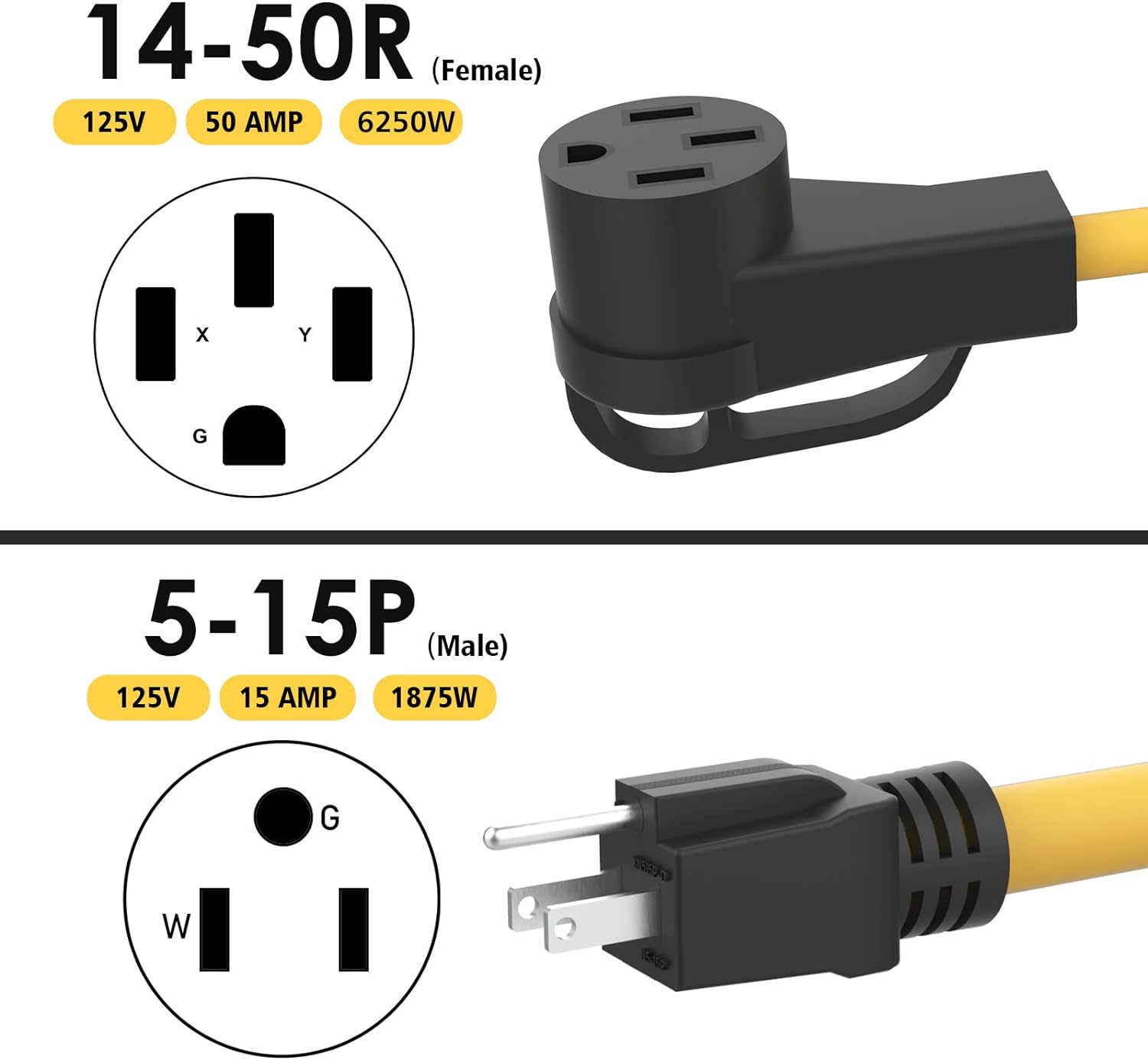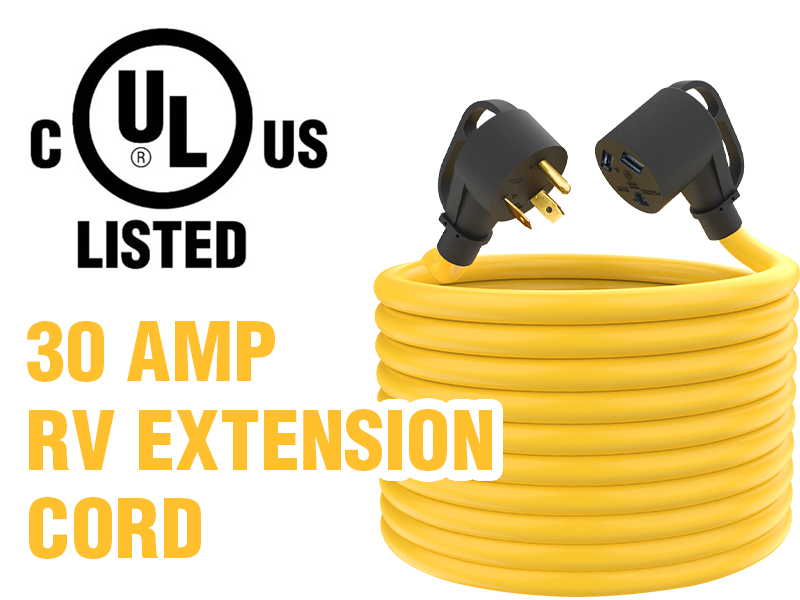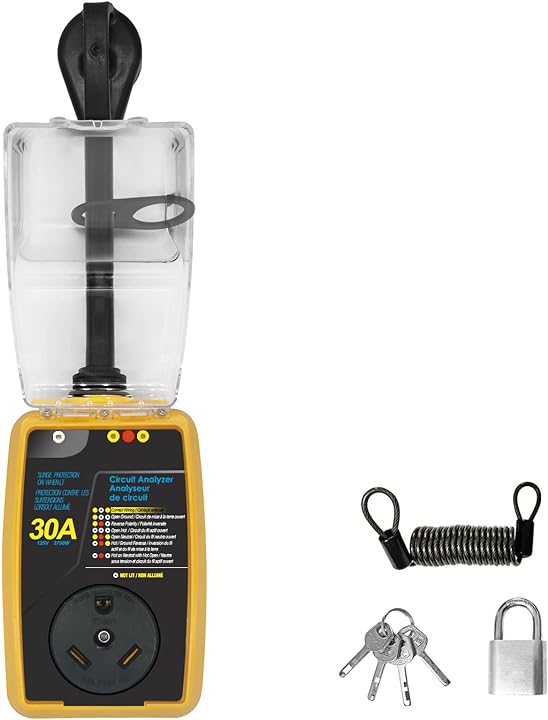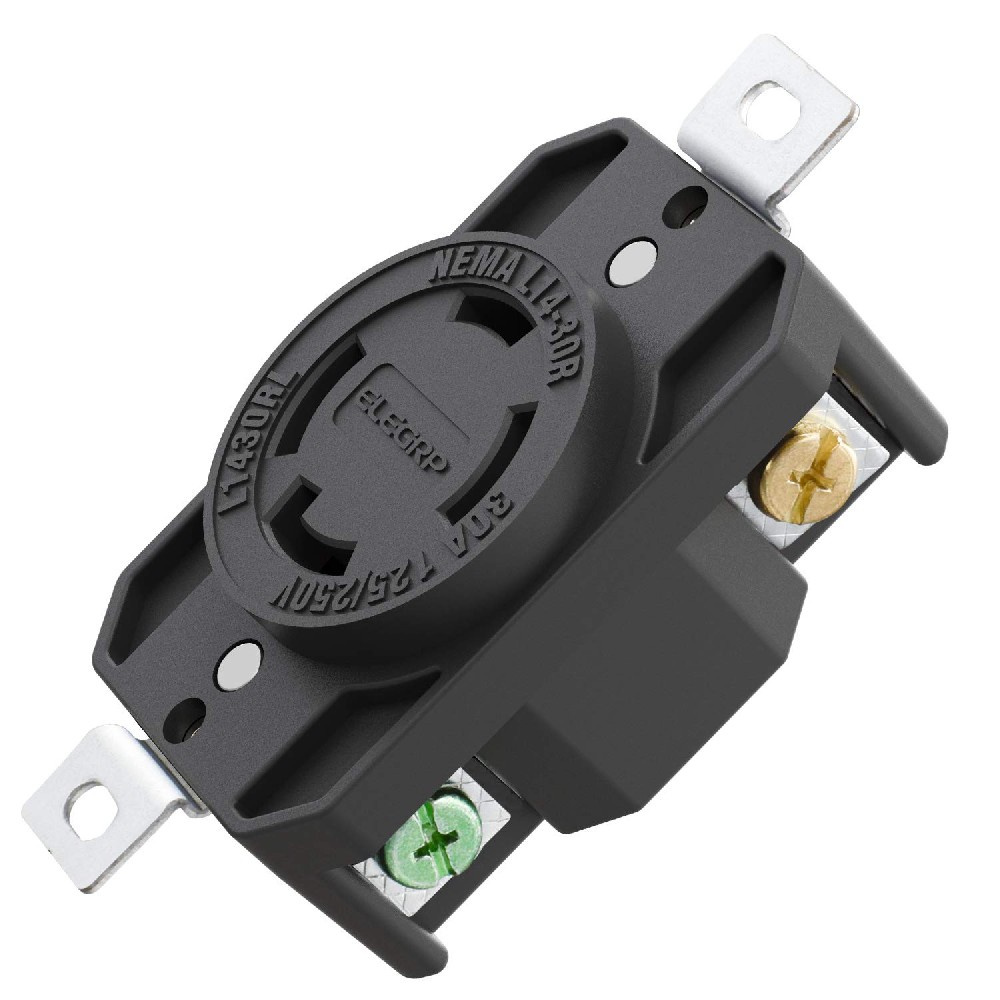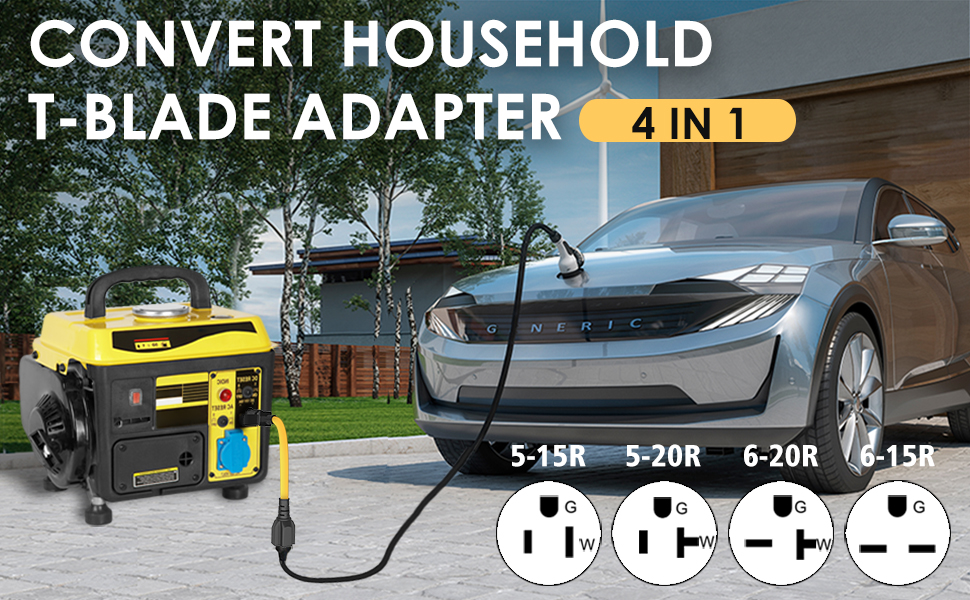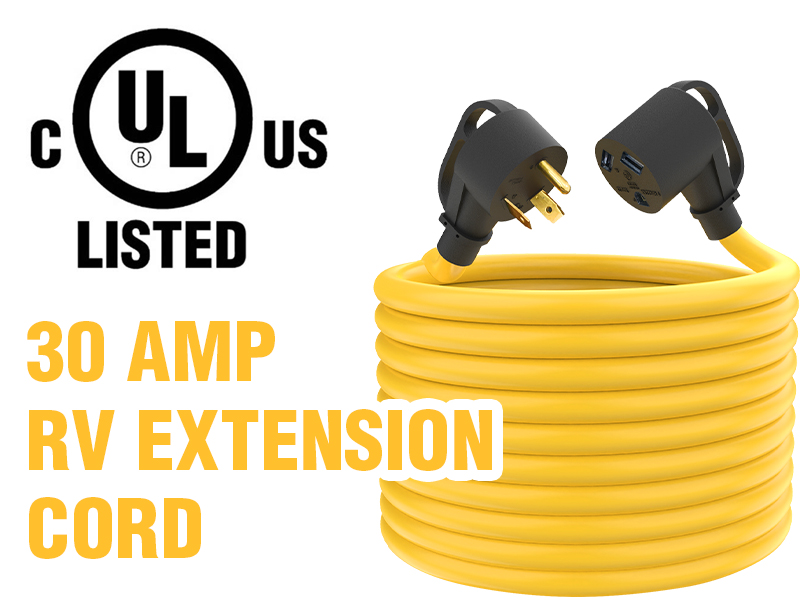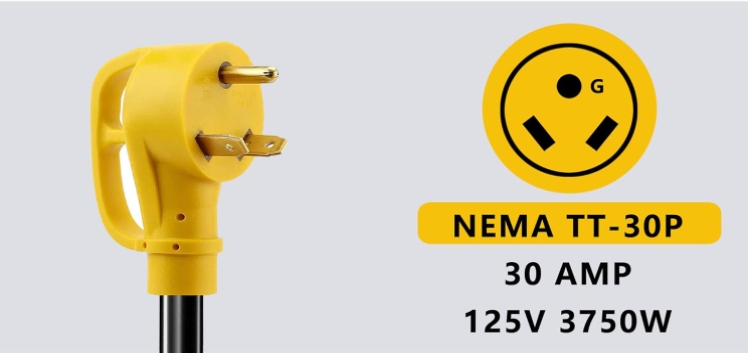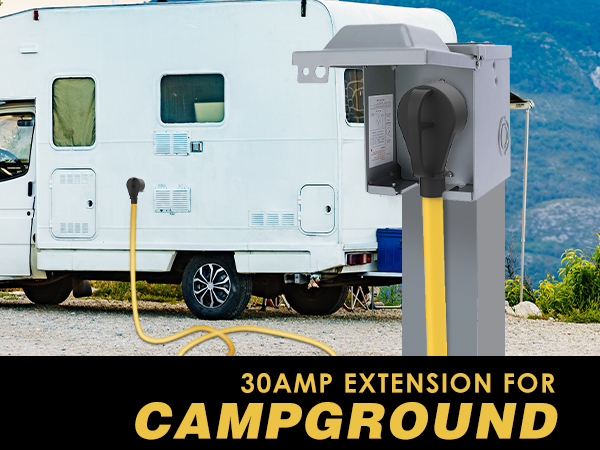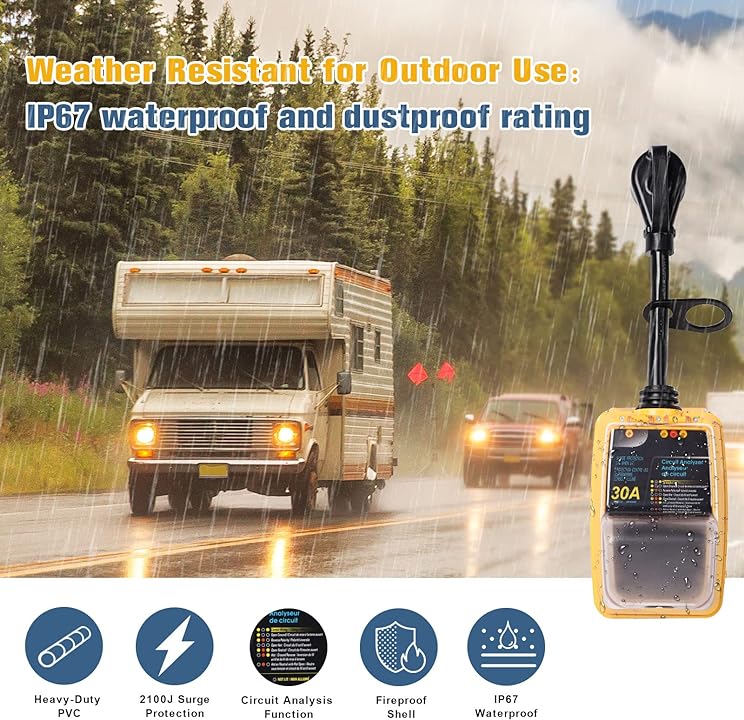Overview:The allure of RV camping resides in the creature comforts it offers, including modern appliances and convenient electronics.
The allure of RV camping resides in the creature comforts it offers, including modern appliances and convenient electronics. To power these essentials, a reliable electrical connection is essential. Ideally, you can plug your RV cord into a power pedestal or campground generator. However, experienced RVers are well aware that electrical connections can be far from straightforward. Situations may arise where only a 30-amp outlet is accessible, yet your RV cord is a 50-amp version. Alternatively, you might need to connect your RV to a home outlet for winter storage.
Thankfully, adapters come to the rescue, simplifying the process of connecting your 30-amp cord to a 50-amp outlet (or vice versa), hooking up to a generator, or linking to a home outlet. Discover more about selecting the right adapter for your specific needs in the following discussion. Additionally, delve into valuable information about essential electrical accessories like extension cords and surge protectors that enhance the convenience of RV life.
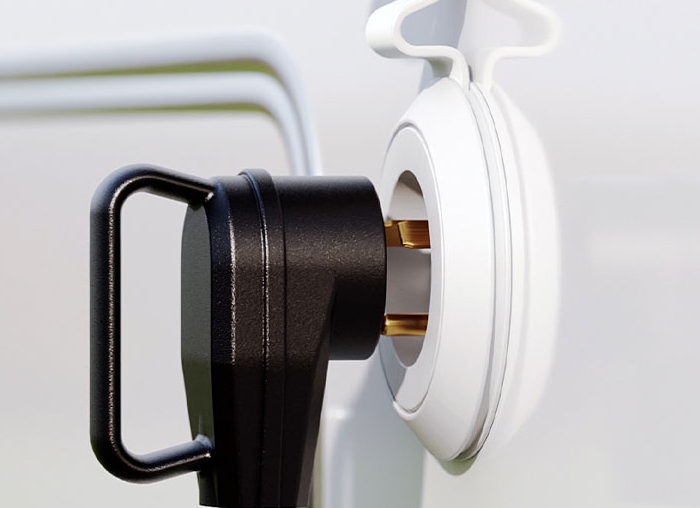
Distinguishing 30-Amp and 50-Amp RV Service
Before selecting the appropriate adapter for your RV cord, gaining a fundamental understanding of the electrical system at play can be immensely helpful. In the realm of RVs, two primary service types, 30-amp, and 50-amp, take center stage. Your RV will require one of these, and identifying the type of plug your RV uses is a straightforward process: 30-amp plugs feature three pins, while 50-amp plugs come equipped with four.
30-amp service is the norm in smaller RVs, featuring fewer power-hungry appliances. Typically, you'll find single AC units in 30-amp service RVs. The configuration for 30-amp RV plugs consists of a single 120-volt hot pin, a flat neutral, and a round ground pin. In contrast, larger RVs often employ 50-amp service to accommodate their more luxurious setups, including double AC units and washers/dryers. 50-amp plugs incorporate two 120-volt hot pins, a flat neutral pin, and a round ground pin. The power output significantly differs, with a 30-amp RV supporting up to 3,600 watts, while a 50-amp RV provides a substantial 12,000 watts of power.
Once you've determined your RV's power requirements, it becomes a matter of ensuring your plugs are appropriately sized to connect to the available power sources. Campground power pedestals typically offer both 30-amp and 50-amp outlets, although some may solely provide 30-amp outlets. In such cases, an adapter becomes an invaluable tool to ensure your readiness for any scenario the campground presents.
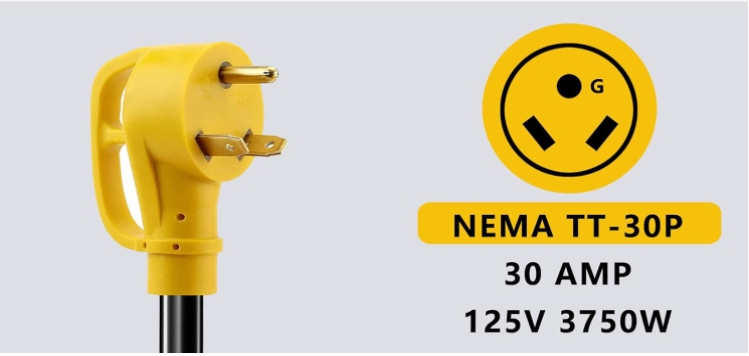
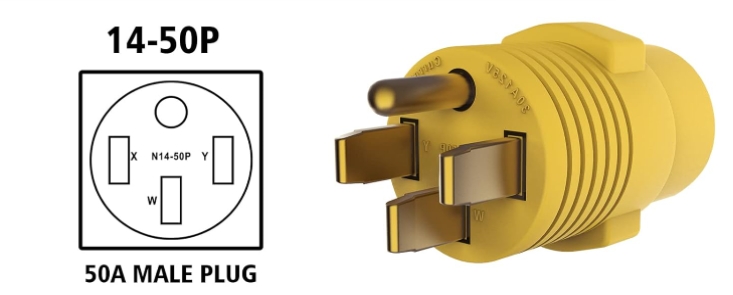
Can I Connect My 30-amp RV Cord to a 50-amp Power Pedestal?
Certainly! There's often concern that plugging a 30-amp RV cord into a 50-amp power receptacle might harm the RV's electrical system, but this is a misconception. You can establish this connection using an adapter. The adapter features a female end that connects to your RV cord and a male end that links to the power pedestal at a campground. Adapters are available in two main styles: the dogbone-style and the plug-style, as illustrated below.
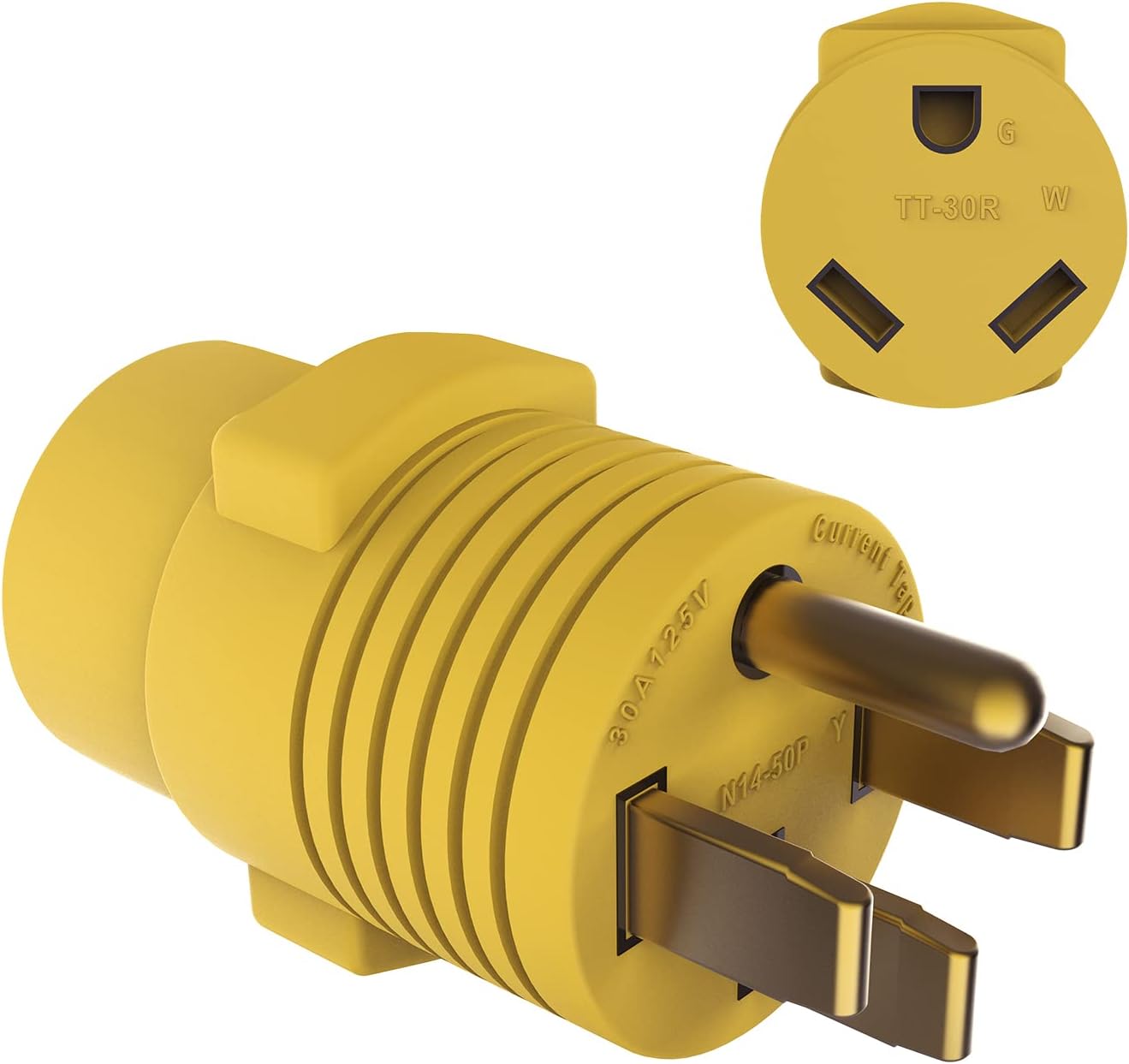
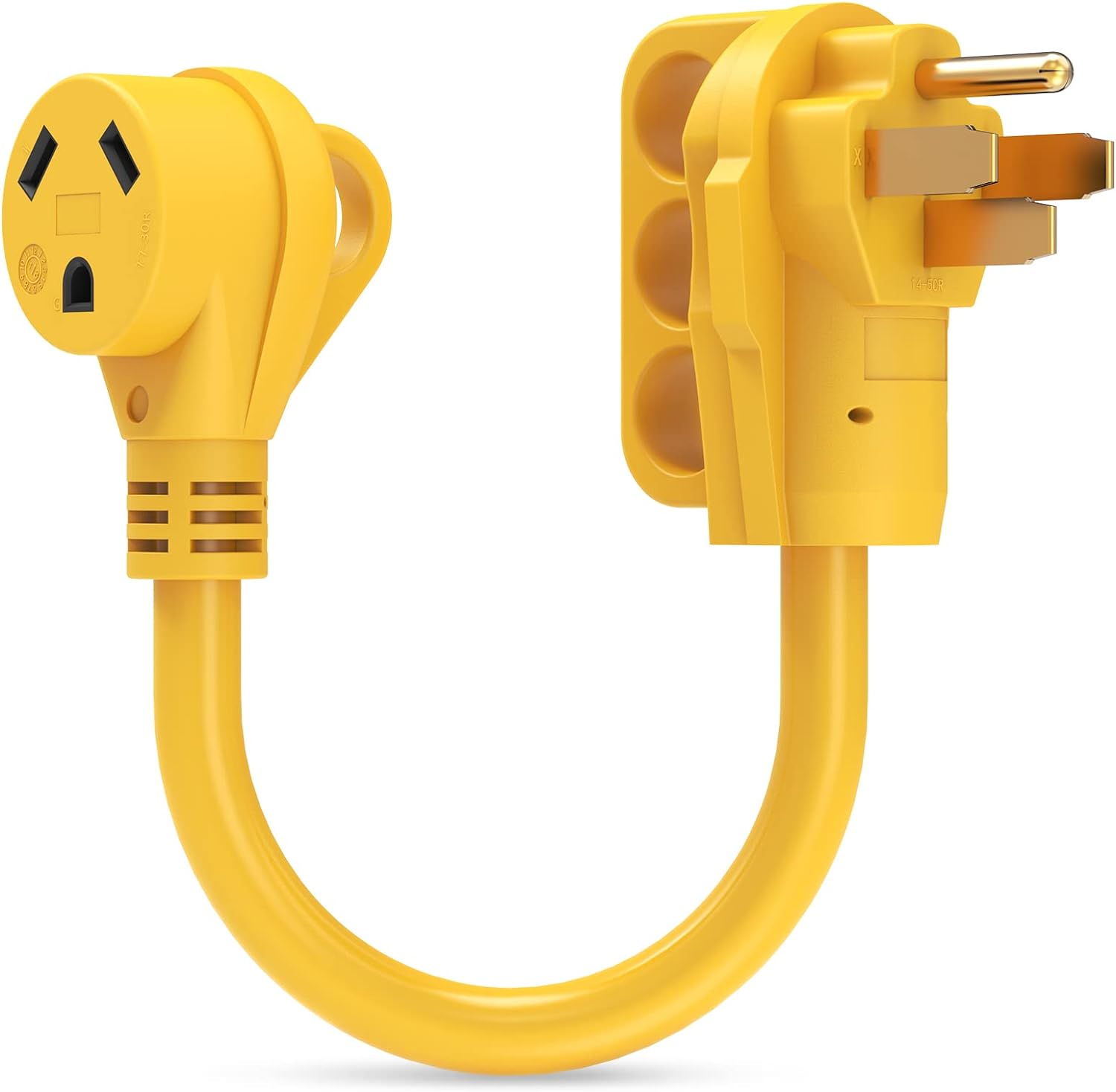
With this setup, you can fully utilize the 30 amps of power provided by your RV. It's important to note that in the case of a 30-amp RV, the maximum power you can utilize is still limited to 30 amps, irrespective of the receptacle you plug into. In other words, even when connected to a 50-amp receptacle, you'll continue to have access to a maximum of 30 amps of power.
Can I Connect My 50-amp RV Cord to a 30-amp Power Pedestal?
Absolutely! Utilizing an adapter, you can link a 50-amp RV cord to a 30-amp power pedestal at a campground. The adapter features a female end that connects to your RV cord, and the male end connects to the power pedestal. However, it's important to understand that, without access to a 50-amp receptacle, you won't be operating at full power. Consequently, you may encounter some limitations concerning the number of appliances you can run simultaneously.
For example, if your RV boasts two air conditioners, you may find it necessary to run only one at a time. Other power-hungry appliances, like microwaves, may require careful management.
Nevertheless, not all campsites offer 50-amp receptacles, making it advisable to carry a 30-amp adapter with you in such situations. Adapters are available in two primary styles: the dogbone-style and the plug-style, as illustrated below.
Can I Connect My RV to a 15-amp Home Electrical Outlet?
Certainly! When it's time to store your RV, it's often a wise choice to connect your motorhome to a home power source to maintain the battery's charge. In this scenario, you can use a 15-amp socket for the connection.
It's important to understand that this type of connection will deliver a modest charge, not the full power you typically enjoy at campgrounds. However, plugging your RV into a home electrical outlet ensures your battery remains charged and ready for action when RV season returns. Adapters for such connections are available in two primary styles: the dogbone-style and the plug-style, as depicted below.
Selecting the Right RV-to-Generator Adapter
When connecting your RV cord, whether it's 30-amp or 50-amp, to a generator, it's crucial to use a purpose-made adapter. Generator plugs come in two primary styles: 3-prong and 4-prong. Therefore, it's essential to ensure that your adapter aligns with the plug style on your generator. It's worth noting that the plug styles are unrelated to whether your RV cord is 30 or 50 amps. Both 30-amp and 50-amp cords can be adapted to fit either 3-prong or 4-prong generator plugs.
While selecting a generator, it's important to ascertain that it provides adequate power for your camper's needs. If you require assistance in selecting the right generator, check out our article dedicated to helping you make an informed choice. Additionally, consider optimizing your motorhome's power consumption, such as by replacing standard bulbs with energy-efficient LED bulbs.
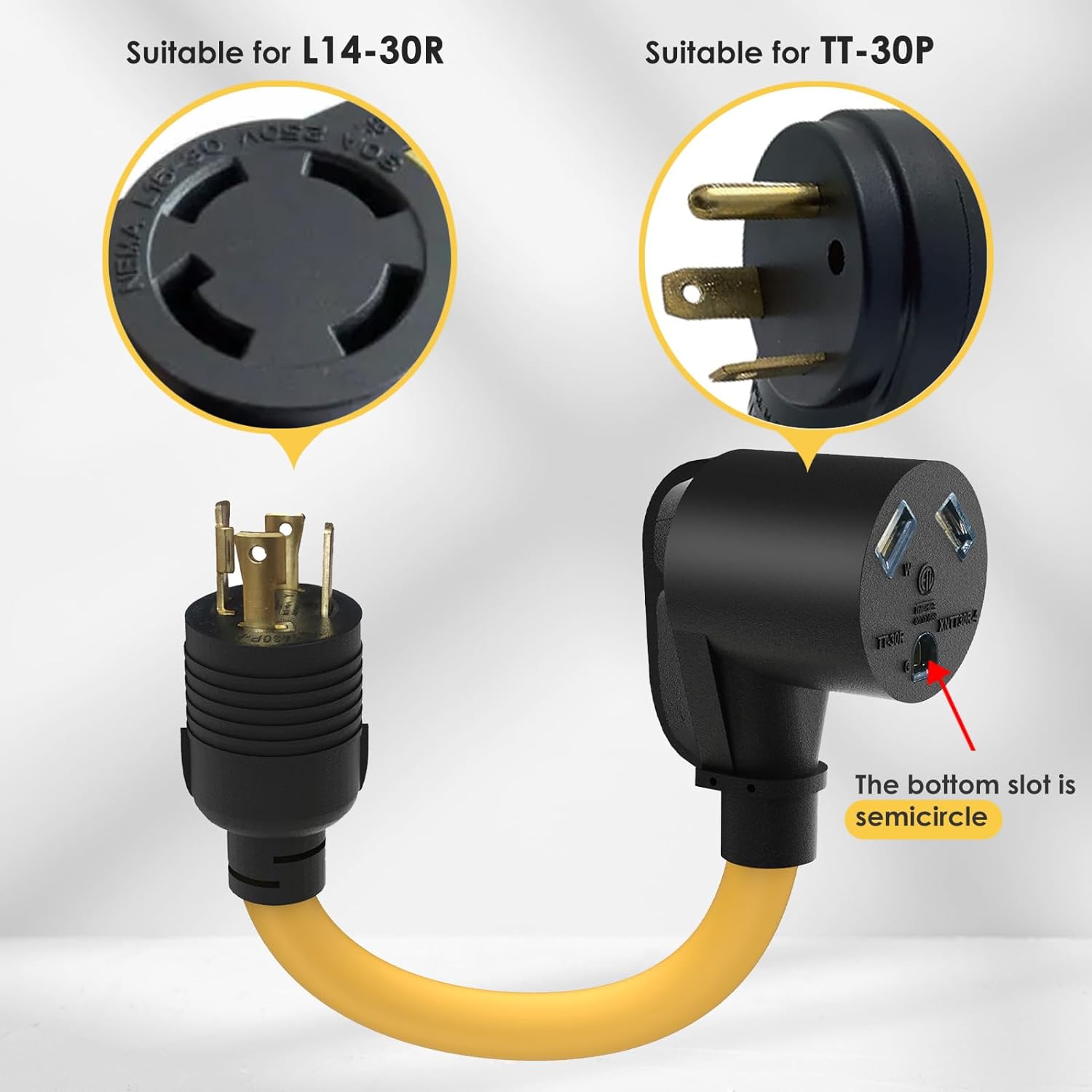
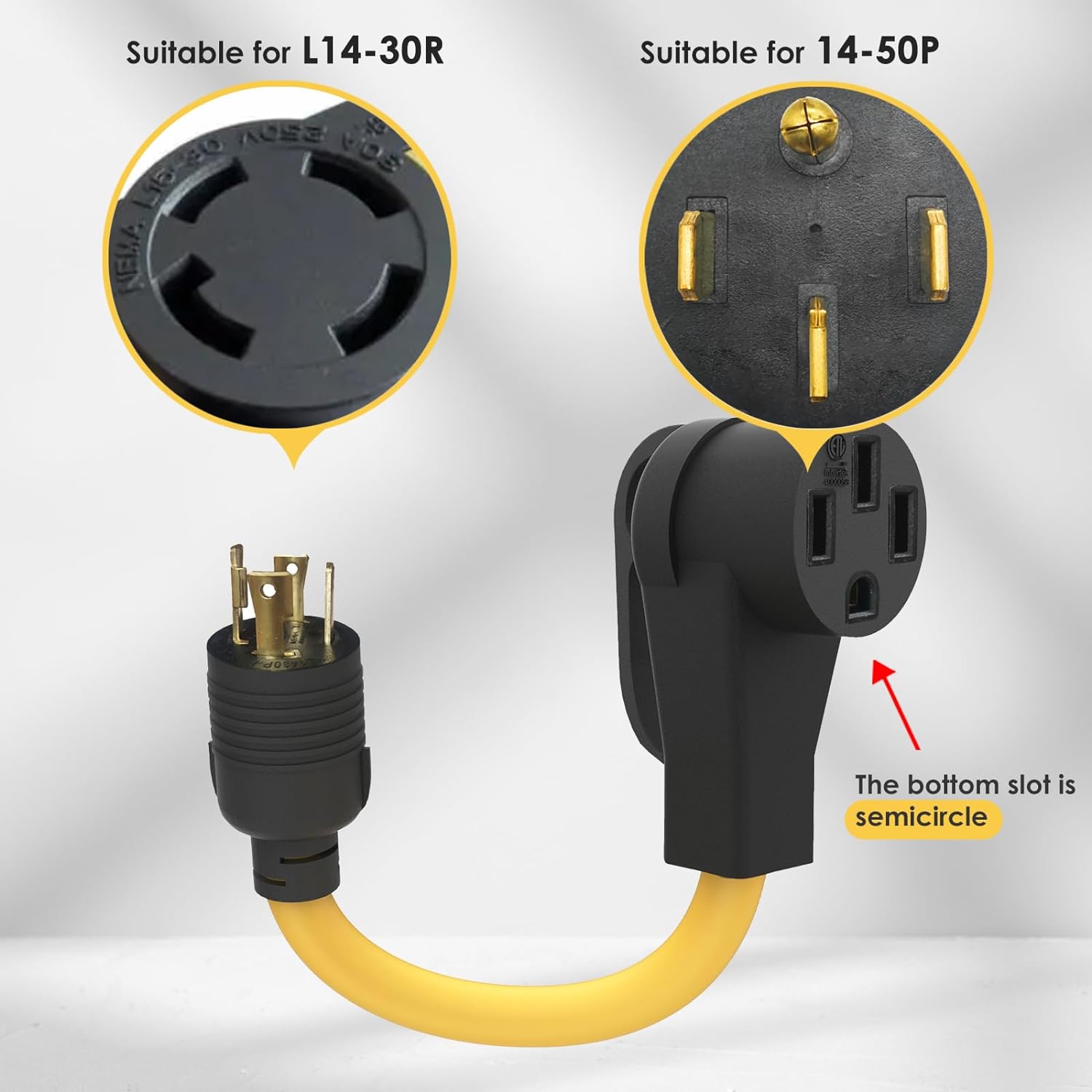
Can I Connect My RV to My Dryer Outlet?
While it might seem tempting, you should avoid attempting to link your RV to your dryer outlet. Even though 30-amp RV outlets and dryer outlets appear similar, they are not the same in terms of NEMA configuration. 30-amp RV plugs are of the NEMA TT-30 type, whereas 30-amp dryer receptacles adhere to the NEMA 10-30 configuration. These configurations are not interchangeable, and attempting to plug your RV into your dryer outlet can result in significant damage to your RV's electrical system.
To ensure your RV stays powered at home, the safest option is to connect it to a standard 15-amp outlet. Alternatively, for a more robust solution, you can consult a qualified electrician to install a dedicated electrical hookup for your RV at your residence.
Choosing the Right Wire Gauge for Your RV Extension Cord
RV power cord extensions are invaluable when the electrical box is just beyond reach. However, it's vital to use an extension cord with a wire gauge that can safely handle your RV's current requirements. It's worth noting that most typical household extension cords are not suitable for RV use. Using a household extension cord with an inadequately small wire gauge may result in damage to the cord and potentially harm your RV's electrical system.
Instead, numerous RV-specific extension cords are available, each designed for the specific demands of RVs. 30-amp RV extension cords typically incorporate a robust 10-gauge wire, while 50-amp cords typically feature 6-gauge hot and neutral wires along with an 8-gauge ground wire.
These RV extension cords come in various lengths, ranging from 10 to 50 feet. However, it's important to bear in mind that the longer the extension cord, the greater the voltage drop you may experience. Excessive voltage drops can affect the operation of larger appliances, such as air conditioners and refrigerators, as they may not receive the necessary voltage to function correctly. Therefore, it's advisable to opt for the shortest extension cord that meets your specific needs.
Choosing Between 30-Amp and 50-Amp Surge Protectors: Which One Is Right for You?
Ensuring your RV's electrical system remains safeguarded while at the campsite is paramount. Luckily, protective devices like surge protectors and voltage analyzers/monitors are available to grant you peace of mind. These tools play a vital role in shielding your RV from the potential hazards of improperly wired electrical boxes and power surges.
A surge protector, as the name implies, activates when it detects a power surge and serves as a barrier to prevent the current from causing harm to your RV. Voltage analyzers and voltage monitors elevate this level of protection by identifying issues with the electrical box and signaling any irregularities. Voltage analyzers require manual reset after detecting surges, while voltage monitors offer comprehensive defense by addressing both surges and low voltage; they can disconnect and reconnect automatically.
It's crucial to match your surge protector with your RV's power type. For instance, if you have a 50-amp RV, opt for a 50-amp surge protector, and if you have a 30-amp RV, choose a 30-amp surge protector. If you encounter a situation where your RV is 50 amps but the power pedestal is only 30 amps, you can still use your 50-amp surge protector, provided you employ the appropriate adapter—a 50-amp to the 30-amp adapter, where the 50-amp side connects to the surge protector.
This ensures your electrical system remains safeguarded, irrespective of any disparities between your RV and the power source.
M1A2 RV Cord Professor

